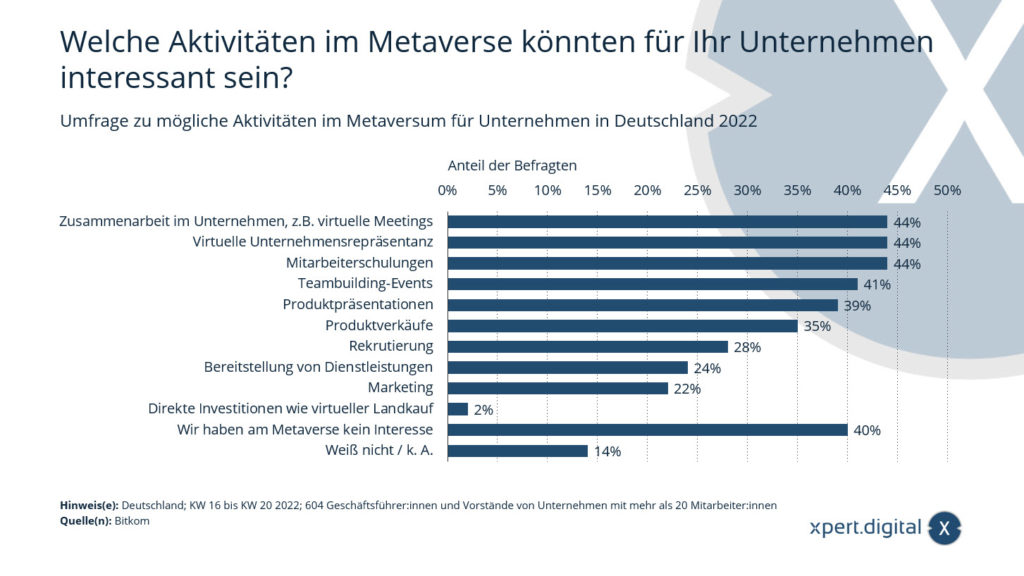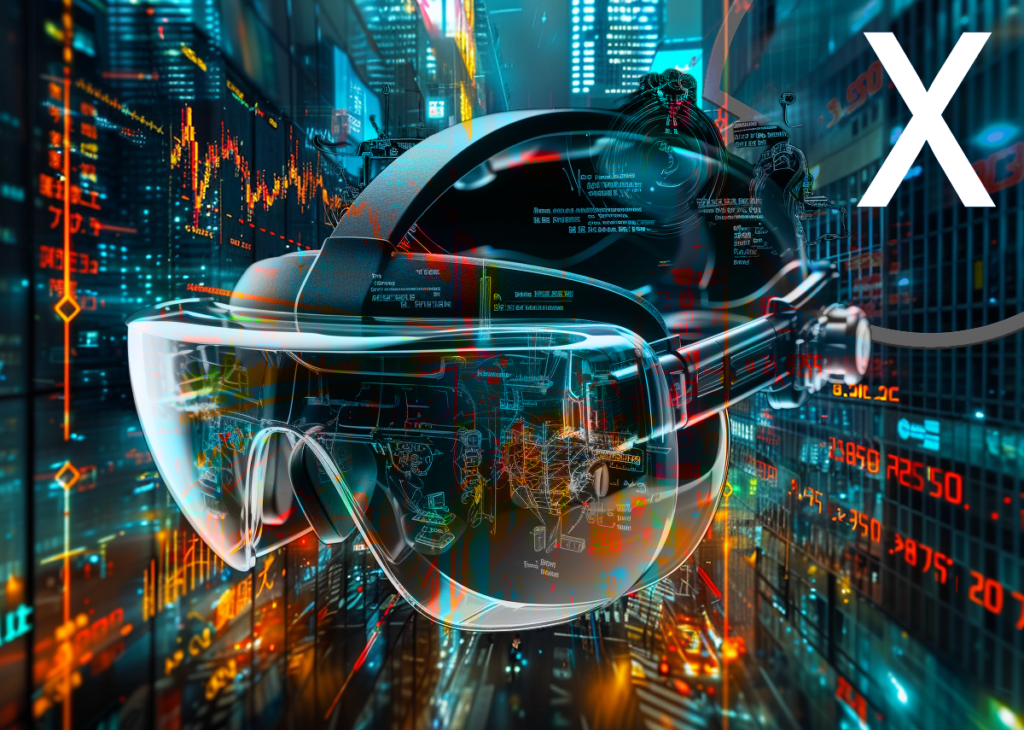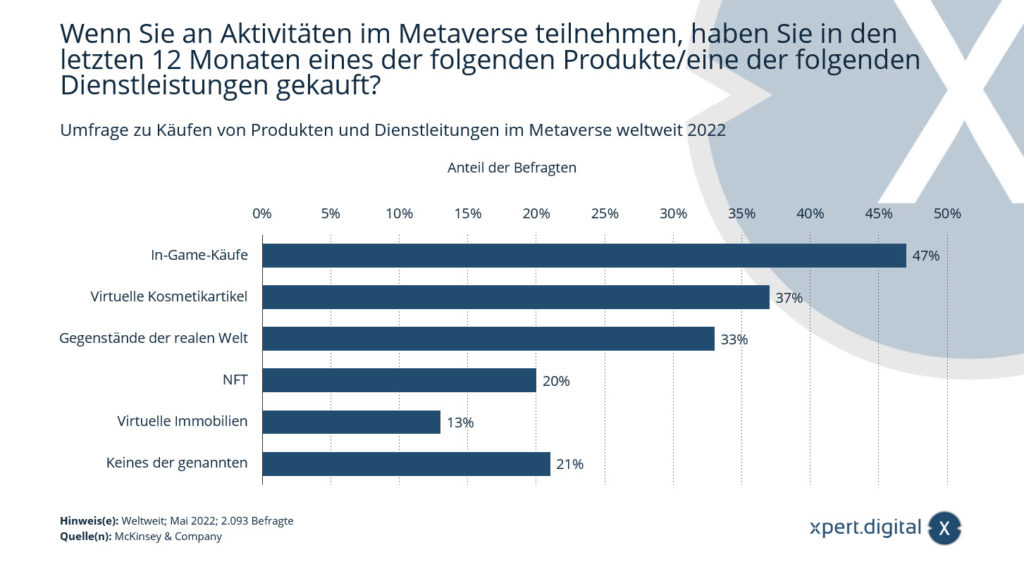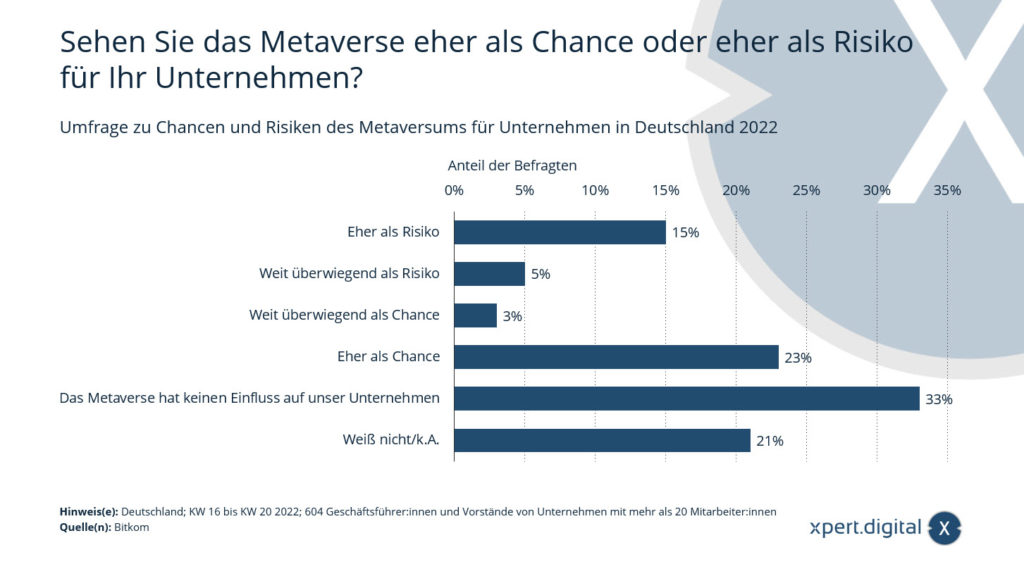Published on: October 20, 2024 / Update from: October 20, 2024 - Author: Konrad Wolfenstein
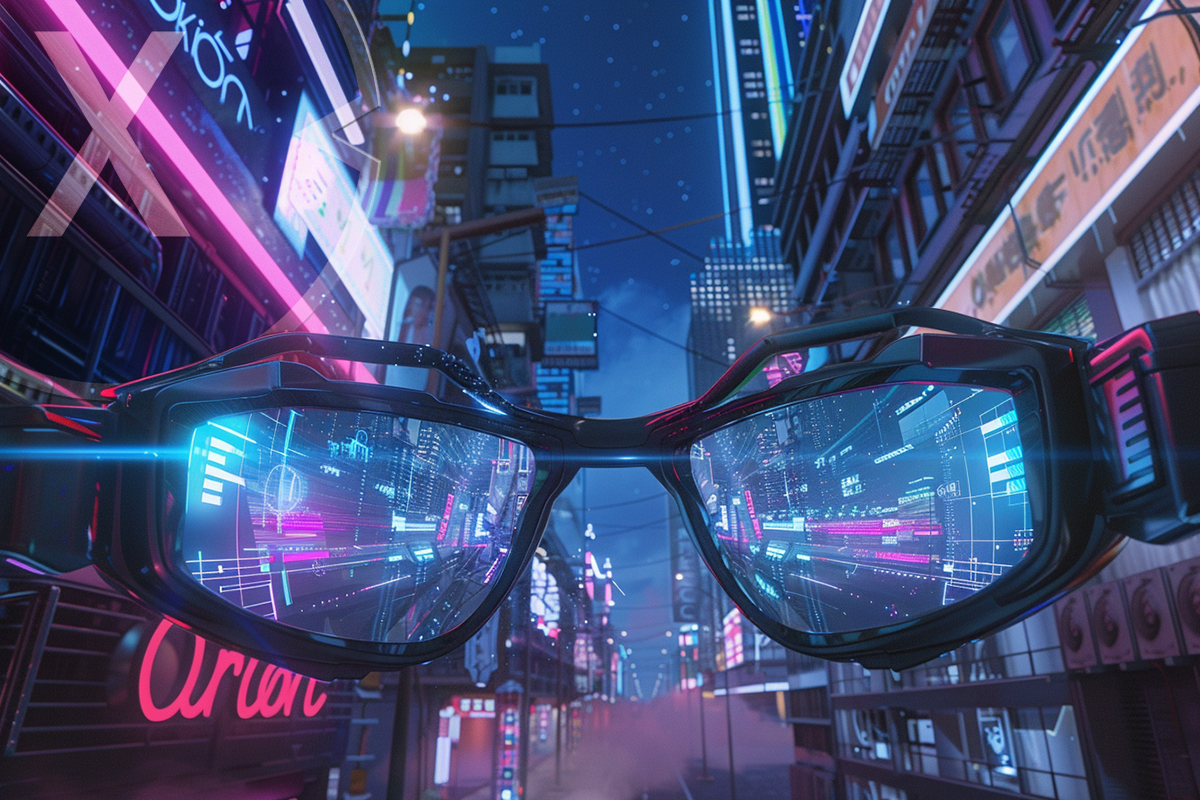
Does the focus on AR glasses technology bring us one step closer to the Metaverse? – Image: Xpert.Digital
New vision after the Metaverse hype: Meta and the groundbreaking AR technology
After Meta, the company founded by Mark Zuckerberg, has undergone an intensive phase of development in the field of metavers, the focus now seems to focus on a new technological vision: the augmented reality (AR). With the presentation of the new “Orion” glasses, Meta pursues the goal of merge the digital and physical world in a way that could revolutionize our everyday life. AR is not only an expansion of reality, but could also be considered the next technological revolution in the near future.
Suitable for:
A new technological focus at Meta
Meta's decision to turn away from the original efforts in meta-verse and to rely on AR technologies instead marks an important turning point in the company's strategy. At the META Connect conference, the "Orion" glasses were presented as the latest flagship product, which is intended to fundamentally change the way people interact with digital content. While earlier products such as the Ray-Ban Meta-glasses only served as a smart addition to the smartphone, “Orion” goes far beyond and should offer users real AR experiences.
Meta's goal is to make AR technologies suitable for the mass market and to integrate interaction with digital content into users' everyday lives. “We are on the threshold of a new era,” Zuckerberg explained at the conference, “an era in which the boundaries between the physical and digital worlds will blur.” This new vision suggests that meta is not the future of technology only in virtual worlds, but in the fusion of real and augmented reality.
The technology behind the “Orion” glasses
The “Orion” glasses are equipped with a variety of innovative technologies that should enable seamless and natural interaction with digital content. One of the outstanding functions is hand tracking that has already been used in the Meta Quest Virtual Reality (VR) glasses. At “Orion”, this is supplemented by a so-called EMG Wristband, a bracelet that is able to capture the finest muscle movements in the wrist. This technology enables the AR glasses to be precisely controlled by simple gestures without relying on physical controllers.
In addition, the glasses also offer the possibility of voice control and eye tracking, which should further refine the user experience. These features allow users to interact with digital content in entirely new ways, simply by looking at or pointing at objects to retrieve information or trigger actions. This innovative technology is intended to enable the “Orion” glasses to function as an intuitive interface between humans and machines.
Meta AI: Artificial intelligence as the heart of the “Orion” glasses
A central element in how the new AR glasses work is the integration of Meta AI. This artificial intelligence plays a key role in personalizing and optimizing the user experience. Meta AI allows the glasses to not only respond to simple commands, but also to be able to take on complex tasks. For example, by simply pointing at an object, AI can provide relevant information or automatically perform certain actions.
A conceivable application scenario is extended navigation: By wearing the glasses, the user can receive visual information about their surroundings in real time. For example, the glasses could show the wearer the best route or provide information about nearby places. The “Orion” glasses could also play a central role in the work environment by helping users to complete tasks more efficiently or by being used in training courses. According to Meta, the combination of AR and AI offers “an entirely new way of human-computer interaction that is both practical and revolutionary.”
A new way of digital interaction
The “Orion” technology is more than just a gimmick - it could fundamentally change the way people consume information and interact with their environment. AR has the potential to have a major impact on both professional and private sectors. In education, teachers and students could gain access to immersive learning environments through AR glasses that visualize complex topics in a vivid way. For example, engineers and architects could work on projects in the real world and at the same time overlap digital models in real time to check their designs.
For the average consumer, AR could change the way we engage with entertainment and media. Instead of looking at screens, users could experience movies, games or social media right in their surroundings without being distracted by the physical world. AR glasses could also play a role in communication by bringing people together in virtual spaces without them having to be physically present.
Challenges and opportunities on the path to mass acceptance
Despite the groundbreaking technology, Meta and other companies that work in the AR sector face several challenges. One of the biggest hurdles on the way to market maturity is how this technology can be designed affordable and user -friendly. So far, AR glasses are more niche products that are often expensive and chunky. In order for the “Orion” glasses to make the jump to the mass market, the design, functionality and price must be coordinated so that they are attractive for a broad target group.
Another challenge is social acceptance of this new technology. Similar to the introduction of smartphones, AR glasses may initially be met with skepticism, particularly when it comes to privacy and security. Since the glasses could continuously collect information about their users' surroundings, strict guidelines and security precautions must be put in place to prevent misuse. Meta has already announced that it sees privacy as a top priority to gain user trust.
Mark Zuckerberg's vision of an “AR-centric” future
Mark Zuckerberg has repeatedly expressed optimism about the potential of AR technologies. In an interview, he said: “We believe that AR glasses will be the next big computing device, similar to the smartphone of a decade ago.” This vision is based on the assumption that AR glasses will become an indispensable device in the coming years could become a tool in our daily lives. They could take on tasks that are still performed on smartphones or computers today, while opening up new possibilities for digital interaction.
Meta is investing significant resources in the further development of the “Orion” glasses and hopes to achieve the technological breakthrough in the next few years that could make AR the new mainstream technology. However, the company emphasizes that it will take some time before this vision becomes a reality. “We are on the right track,” said Zuckerberg, “but there are still many technological challenges that we need to overcome before AR glasses become ubiquitous.”
The path to an “expanded” future
With the development of the “Orion” AR glasses, Meta is pursuing an ambitious vision that has the potential to fundamentally change our relationship with the digital world. While the Metaverse represents a more experimental approach, Meta is now focused on a more tangible technology that could have a lasting impact on people's everyday lives. It remains exciting to see whether and how this technology will become established. But one thing is clear: Meta is determined to be at the forefront of this next technological revolution.
- From concept to reality: Start-ups are shaping the future with digital twins and extended reality technologies – Image: Xpert.Digital
- Survey on possible activities in the metaverse for companies in Germany – Image: Xpert.Digital
- Spatial Computing and More: Your Gateway to Understanding the Metaverse Index – Image: Xpert.Digital
- Survey on purchases of products and services in the Metaverse worldwide 2022 - Image: Xpert.Digital
- AI & XR 3D Rendering Machine: Metaverse and Smart Cities: Reducing physical presence through virtual alternatives – Image: Xpert.Digital
- Survey on the opportunities and risks of the metaverse for companies in Germany – Image: Xpert.Digital
The 'Orion' AR Glasses – Meta's new or parallel focus on AR technology to the Metaverse?
Meta Platforms, formerly known as Facebook, has made significant investments in the development of Virtual Reality (VR) and Augmented Reality (AR) technologies in recent years. These technologies are the focus of the company's vision of creating a comprehensive metaverse - an immersive digital environment in which people can interact with each other as if they were physically together. A central project in this context is the development of the “Orion”-AR glasses. This device could be a crucial step in Metas strategy to make the meta -verse reality.
The “Orion”-AR glasses: an overview
The “Orion” glasses are an internal META project that has been developed for several years. The aim is to create a light, stylish and functional AR glasses that offers users a completely new experience. In contrast to previous AR devices, which are often chunky and limited to specific applications, “Orion” is said to be an everyday device that can be seamlessly integrated into the life of users.
The glasses are intended to project information directly into the user's field of vision, enable interactions with virtual objects and design communication in new ways. The focus is on the idea that glasses could replace smartphones in many areas of application. Functions such as phone calls, messages, navigation and even video conferences could be handled directly via the glasses.
Suitable for:
Metas vision of the metaverse and the role of “Orion”
Metaverse is more than just a virtual space; It is an expansion of the real world by digital elements. Meta sees this as the next level of evolution of the Internet, in which physical and digital reality merge. The “Orion” glass could serve as a gateway to this expanded reality.
By integrating AR technology into a portable and everyday device, “Orion” enables users to experience metagers at any time and anywhere. For example, you could hold virtual meetings in your real environment, look at interactive 3D models or access information about places and objects in your area in real time.
New or parallel focus?
Meta has already made considerable progress in the VR area, in particular by taking over Oculus and the development of the Oculus Quest series. These VR headsets have revolutionized the way people can immerse themselves in virtual worlds. With the “Orion” glasses, Meta is expanding its focus on AR, which causes some to the question: Is this a new focus or a parallel development?
The answer probably lies in a combination of both. While VR offers deep, immersive experiences in completely virtual worlds, AR allows digital information to be overlaid on the real world. Both technologies are complementary and play an important role in Meta's overall strategy for the Metaverse. By simultaneously developing VR and AR technologies, Meta is positioning itself as a leading player in both areas.
Technological challenges
The development of powerful AR glasses like “Orion” is not an easy task. There are numerous technical hurdles to overcome:
Display technology
Projecting clear, vivid images into the user's field of vision requires advanced microdisplay technologies.
Computing power
Running complex AR applications in real time requires significant computing power that must be packaged in a small form factor.
Energy efficiency
A long battery life is crucial for everyday usability. Energy-saving components and efficient software are therefore essential.
Connectivity
The glasses must be constantly connected to the internet, ideally via fast wireless connections such as 5G.
user friendliness
Operation must be intuitive, possibly through voice control, gestures or eye movements.
Privacy and security
Since the glasses potentially continuously collect data from the environment, strict data protection measures must be implemented.
Potential impact on society
The introduction of the “Orion” glasses could have profound effects in the way people interact with technology and cooperation. Some possible scenarios are:
New forms of communication
Virtual holograms could replace traditional video calls, providing a greater sense of presence.
Advanced Education
Interactive learning content could be projected directly into the students' environment, making learning more vivid and effective.
Changing work environments
Remote work could be made even more efficient through virtual offices and meetings.
Entertainment and gaming
New AR games could use the real world as a playing field, enabling completely new gaming experiences.
Critical voices and ethical considerations
As with any new technology, AR and especially at the “Orion”-AR-Glassen there are critical voices. There are concerns about data protection, the social effects and the possible dependence on technology. It is important that Meta takes these concerns seriously and acts responsibly.
Exciting project with incredible potential
The “Orion” glasses is an exciting project that has the potential to further blur the boundaries between the physical and digital world. It is ultimately less relevant whether it is seen as a new or parallel focus in Meta's strategy than the fact that it is an integral part of the vision of the metaverse.
With the “Orion” glasses, Meta could take a significant step towards a future in which AR technology becomes commonplace. It remains to be seen how successfully the company will master the technical and ethical challenges. However, one thing is certain: developments in this area will have a lasting impact on the way we see the world and interact with it.



